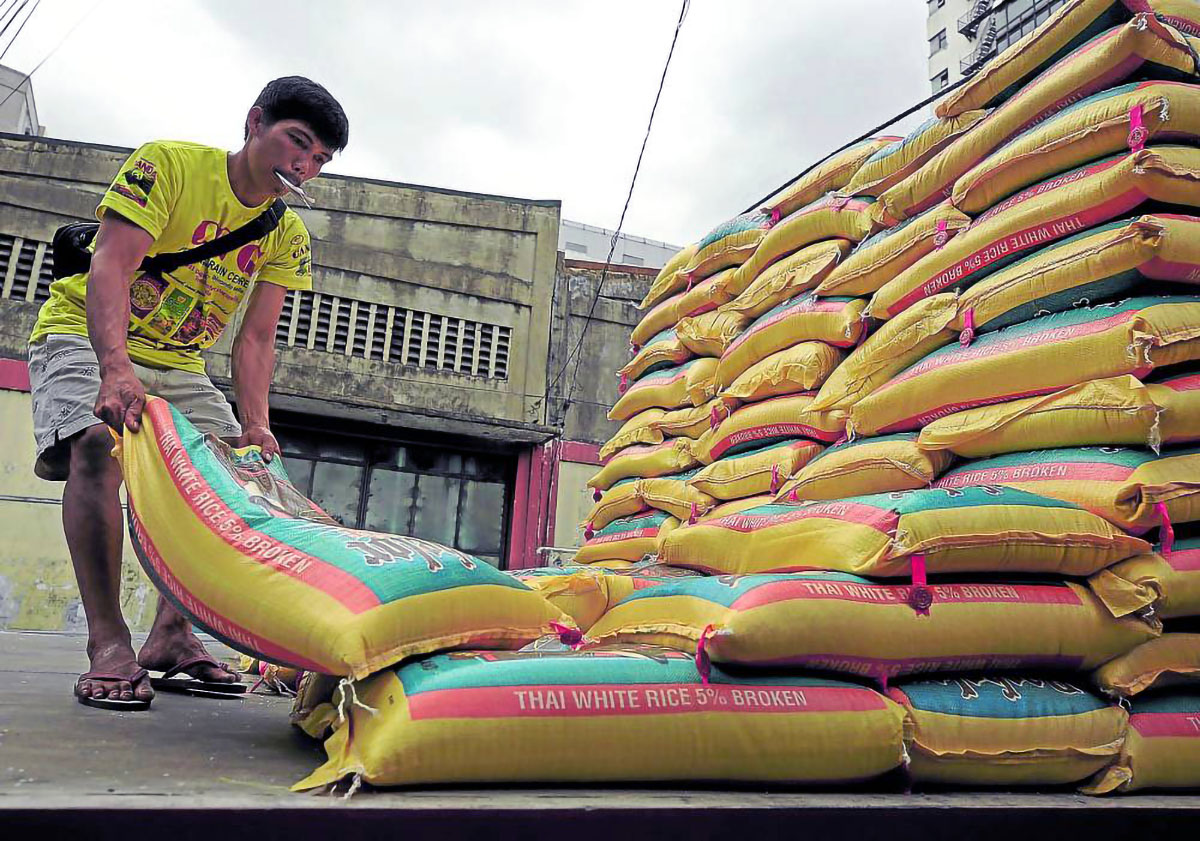
REGIME OF IMPORTED RICE | A worker unloads imported rice into a warehouse in Dagupan City last January. —Photo by Richard A. Reyes, Philippine Daily Inquirer
MANILA, Philippines — Ranking House leaders on Thursday said the lower chamber would still pursue the proposed amendments to the rice tariffication law (RTL) even after President Ferdinand Marcos Jr. ordered a 20-point cut in the 35 percent tariff on rice imports until 2028.
During a press conference, Speaker Martin Romualdez stressed that House Bill No. 10381—which was passed last month and seeks to restore the price stabilization and supply regulation functions of the National Food Authority (NFA)—still formed part of their “approaches to stabilize the price of rice.”
“We would like to look at all of these approaches, one for targeting the imported rice and one with the NFA,” Romualdez said. “We will have [the] complete arsenal of legislation and tariff reduction.”
He also vowed to take up the RTL amendments, which was certified urgent by Mr. Marcos, with his upcoming “legislative coordination” meeting with Senate President Francis Escudero. The Senate had earlier expressed hesitation about passing the RTL amendments, fearing returning those powers to the corruption-ridden NFA.
READ: Marcos: Will boost NFA rice stock with local sources, imports
But for the House Speaker, he said, “we will not give up on any measure so we are still hopeful and optimistic that our friends in the Senate will also pass an acceptable version of the amendments to the RTL.”
The National Economic and Development Authority earlier approved the reduction of rice duty rate to 15 percent until 2028 in a bid to stem hastening inflation driven by high food costs.
‘Shot in the dark’
While the Marcos administration foresees a P6 to P7 price drop from the tariff rate cuts—or P29 per kilo in the coming months—farmer groups like the Federation of Free Farmers (FFF) have called it a “shot in the dark” rather than a real solution to rising rice prices.
The FFF predicted that local farmers stood to lose at least P10 billion from custom revenues intended to finance productivity programs for farmers.
However, Romualdez said, they planned to “keep the pressure on” to ensure that the tariff cuts would translate to a real markdown and not be pocketed by middlemen and hoarders.
House agriculture committee Chair and Quezon Rep. Wilfrido Enverga also assured that tariff collections from rice imports for the year have so far reached P16 billion.
This, he said, would be enough to cover the RTL’s proposed amended target of P15 billion to be used to subsidize local farmers.
“Worst-case scenario, if it falls short, the government will fund it,” he said.
At the same time, Enverga said they were hoping that the recently ratified Anti-Agricultural Smuggling As Economic Sabotage Act—which now awaits the President’s signature—would also act as a deterrent against hoarders and smugglers
Ratified act
Under the act, all rice warehouses are mandatorily required to submit their stock inventory every three months. Violators could face life imprisonment.
“We all want to be on the same page so that that doesn’t happen again,” Romualdez said. “We’re going to be watching each other, we’ll keep each other honest. We will make sure that, for instance, the importers will not abuse the traders, the other stakeholders or the retailers.”
“It’s possible that those things happened before because coordination [between agencies] was not good,” the Speaker said. “But we assure the Filipino people, [we] are… ready to make sure that again, as I can often repeat, [these] savings will be passed on to the end users and to the consumers.”